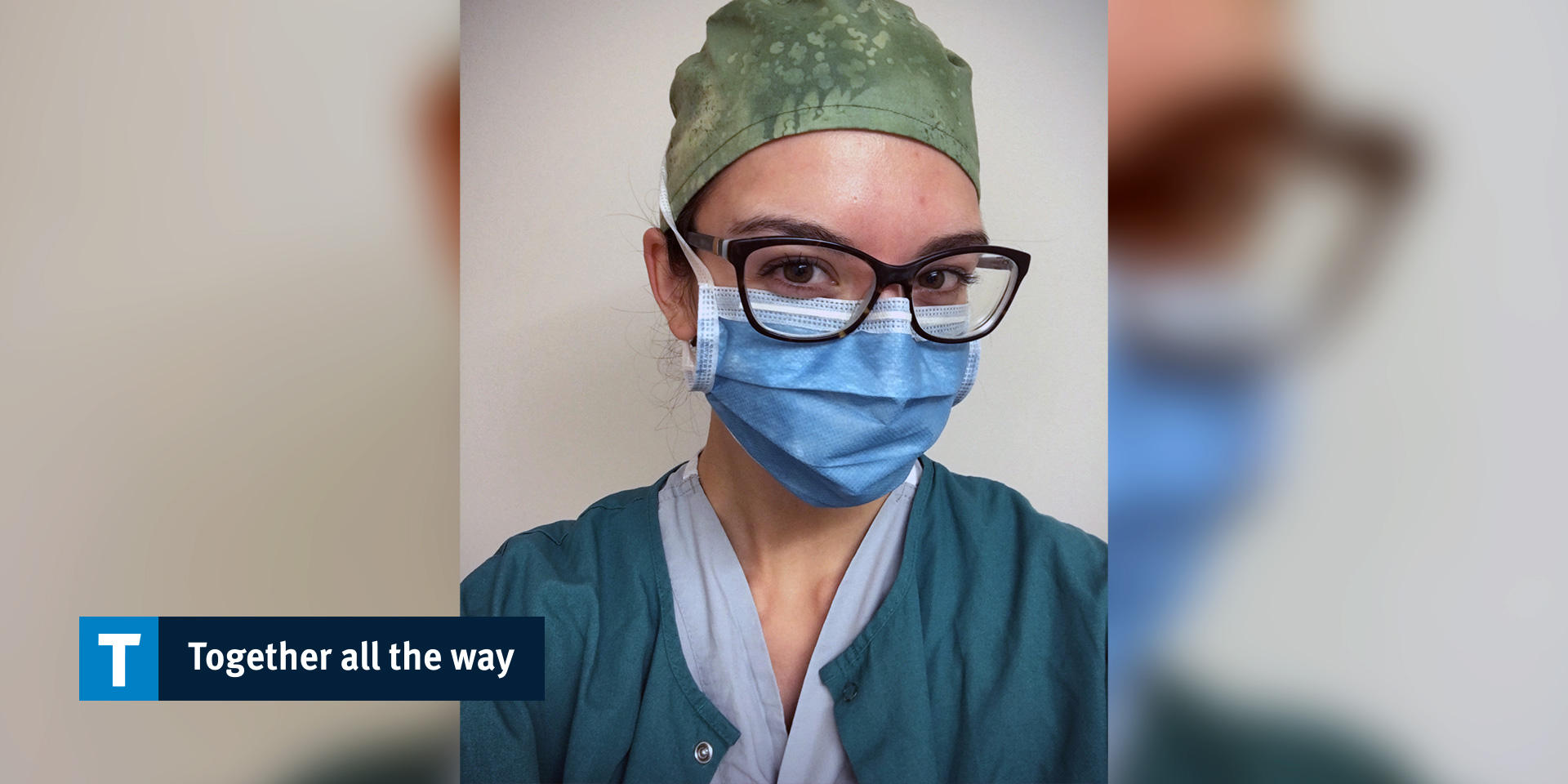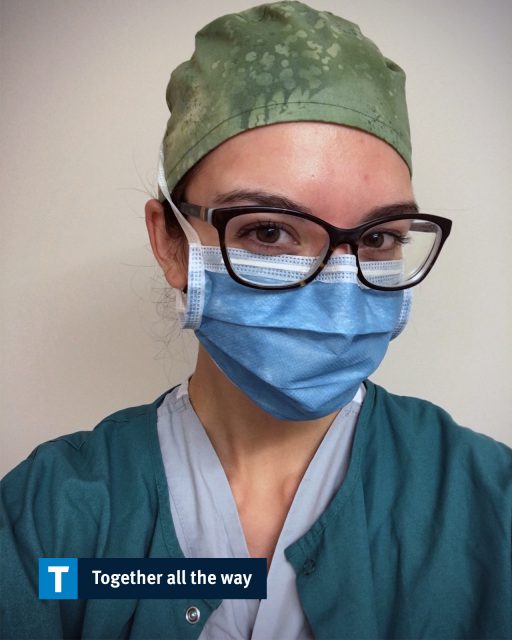Nurse thankful for the community support and transit
Nurse thankful for the community support and transit


There is no playbook for the COVID-19 pandemic — something none of us have experienced in our lifetime. In many respects, we’re all making it up as we go, adapting as each curve ball comes our way. But the more things change, the more they stay the same.
We’re social beings. We value our connections. In a curious way, although we’re apart, we’re closer than ever.
This rings true for nurse Laura Mills, who says the biggest change COVID-19 hasn’t been in the work, but how it’s brought the healthcare and wider communities together.
“As health care teams we have such a sense of unity and purpose, and a renewed drive for delivering the best care we can for our patients,” she says. “And bringing community together as a whole; we are in such awe and so grateful for how our community has gathered together to offer support and kindness in so many ways.”
Every evening at 7 p.m. since the the middle of March, we’ve made our way to outside — or if you’re on transit, you would have heard an announcement — to make some noise for our essential workers. Our West Coast Express trains are sounding their horns at 7 p.m. as it pulls into Pitt Meadow Stations to drop off essential workers like Cara, returning home after a day on the front lines.
Laura’s heard the appreciation loud and clear: “It made me cry. Like that was really significant for us, so thank you for that.”
She, however, is quick to point out she cannot thank the respiratory therapists enough because they are the true front lines of this pandemic. Respiratory therapists initiate and manage life support for people in intensive care units and emergency departments.
As a neonatal intensive care unit nurse, Laura works with premature and critically ill infants.
“These infants are at a particularly high risk of getting sick, especially with respiratory illnesses, as they have underdeveloped lungs and almost no immune system,” she explains. “As nurses, 12 hours at a time, we help these tiny, vulnerable babies to heal and grow, and to help families learn how to care for their tiny new babies and walk through the fearful and unknown times of having a critically ill child.”
To get to her 12-hour shifts, which are either 7 a.m. to 7 p.m. or 7 p.m. to 7 a.m., four days a week, Laura relies on transit, which she says is usually accommodating.
Most days, she’s able to make the hour-and-20-minute commute by taking the bus and SkyTrain, but when she’s scheduled to start at 7 a.m. on weekends, she depends on the NightBus. That’s because on Saturdays, Sundays and holidays, the first train from Waterfront Station isn’t until 6:44 a.m. and 7:44 a.m., so SkyTrain crews have a larger overnight window to complete critical maintenance to keep the system running for years to come.
With TransLink losing $75 million per month with ridership down by 83 per cent, we made the extremely difficult decision earlier this week to reduce service in order to preserve our transit system. We remain focused on maintaining as much service as possible for the over 75,000 people using the system each weekday.
We’re prioritizing service to routes serving hospitals and other health facilities to ensure essential workers, like Laura, can continue to serve our community — all while actively working with senior government to secure more funding to reverse these decisions.
Her weekend 7 a.m. shifts have been affected by minor service modifications to the NightBus and her manager has been accommodating in changing her schedule around. It’s clear she’d be in a pickle if there’s more widespread changes to transit schedules.
“I have to take transit — not just to commute to work — but for everything,” says Laura, who sold her car as a cost-saving measure when she moved to Vancouver. “I don’t really know what would happen to me with that. I maybe have to stay in a hotel, which would be very expensive or I just wouldn’t be able to get to work at all.”
That’s why Laura’s so thankful for transit staff and other essential workers, and TransLink for operating essential transit service.
“I can’t say it enough, thank you to everyone at TransLink and the public transportation sector for the sacrifices you’ve made for supporting our communities. And for continuing to provide service for hospital access — for that, I am so, so thankful.”
![]()
Public transit is an essential service, and we know +75 000 people are still reliant on transit, including frontline workers. Laura’s story is another in our series about the people who are keeping our region operating during this unprecedented time. We at TransLink applaud all that frontline workers are doing, and we’re working hard to get them to their important work – Together all the way.
Do you have a story like Laura’s or know someone doing good these days? If so, we’d love to hear from you via our social channels or email. Together we can get through the challenges that COVID-19 has brought. Telling stories of the effects on each other’s lives can help.






If you want to help keep TransLink awesome and support frontline workers go here: http://SaveTransit.ca